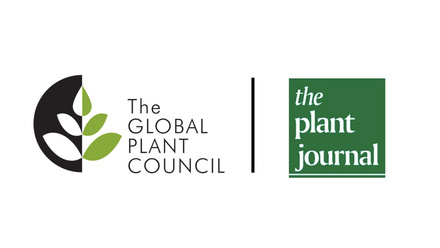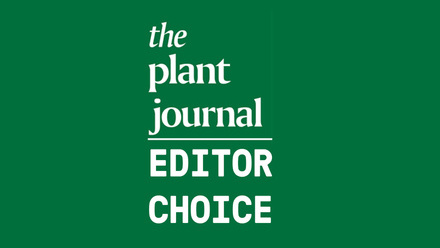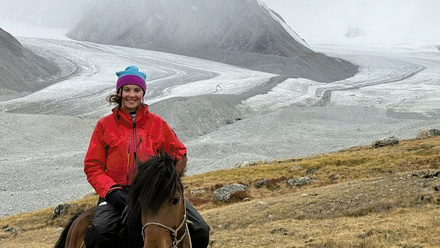Travel Grants to Go
Jessy traveled to Gifu, Japan to attend the International Association of Sexual Plant Reproduction Research (IASPRR) conference and present her research entitled “Unravelling the importance of FLA5 (Fasciclin-like Arabinogalactan Protein 5) in Arabidopsis reproduction”.
A postgraduate Master's student in Functional Biology and Biotechnology of Plants at the Faculty of Sciences, Jessy’s research interests are related to Sexual Plant Reproduction because of its complexity as a biological process and its importance in improving agricultural productivity.
Jessy’s study is focused on fascicles-like arabinogalactan protein 5 (FLA5). “FLA5 has 2 Pro-rich domains flanking a fasciclin domain and a glycosylphosphatidylinositol (GPI) anchor. FLA5 is a target of the transcription factor SEEDSTICK, which regulates the development of the ovule and the seed (Mizzotti et al., 2014). Since seeds are essential units for plant propagation and the first step in their development is the formation of ovules, it is very important to study the genes involved in the reproductive process.
Therefore, to increase our knowledge about the role of FLA5, the objective of the present work was to study a FLA5 RNA interference knock-down line and access its localization by GFP/GUS promoter analysis” explains Jessy.“The International Congress on Sexual Plant Reproduction (ICSPR) is held once every two years and is hosted by the International Association of Sexual Plant Reproduction Research (IASPRR).
Being a researcher in plant sexual reproduction, I decided to attend this congress where I had the opportunity to learn many different aspects and perspectives about the huge diversity in the field of reproduction in plants.
The program covered 9 themes and there were a number of very interesting talks. In particular, Blake Meyers from the Donald Danforth Plant Science Center talked about “The evolution and functional roles of premeiotic reproductive phasiRNAs in plants”. I learned that there are two sets of reproductive phased secondary siRNAs: the 21-nt (pre-meiotic) and 24-nt (meiotic) siRNAs.
Additionally, Nathanael Prunet showed evidence that in the SUPERMAN mutant, the extra stamens results from cells in whorl 4 which change their fate from female to male. This phenotype appears to be mediated by phytohormones as SUPERMAN controls the balance between auxin and cytokinin.
Moreover, Duarte Dionísio Figueiredo presented results indicating that auxin regulates endosperm cellularization in Arabidopsis. This conference allowed me to exchange knowledge, discuss my work with many scientists within my field of study and establish new contacts for my scientific future.
I had the opportunity to talk with Maria Teresa Portes from the University of Maryland about her poster “Ion dynamics in morphogenesis: The role of H+ regulation in pollen tube guidance”. She investigated alterations in the spatial temporal regulation of ion dynamics in a mutant that fails to target the ovules in vivo and I thought her work was very impressive.
In the following days, Anja Geitmann (Universite de Montreal) gave an excellent talk where she showed evidence that pollen tubes extrude enzymes like the pectate lyases to the transmitting tract to allow their passage. Another impressive talk was from José Feijó (University of Maryland) who presented a mechanism in which CORNICHON HOMOLOG (CNIH) proteins activate plant glutamate receptor-like (GLR) channels.
The congress included a Ukai tour and a congress dinner. Ukai is a traditional fishing method that uses trained cormorants to catch river fish. The tour involved a sailing trip along the Nagaragawa river, where we ate Japanese snacks as we watched the amazing cormorants fishing. To end this fantastic congress, we had the opportunity to enjoy some Japanese culinary specialties and to applaud the winners of the awards for the best poster and oral presentations at the congress dinner which took place at Gifu Miyako Hotel.
This congress gave me the opportunity to learn more about the current status of my field of study in a professional environment and to be inspired by other people’s perspectives.”






